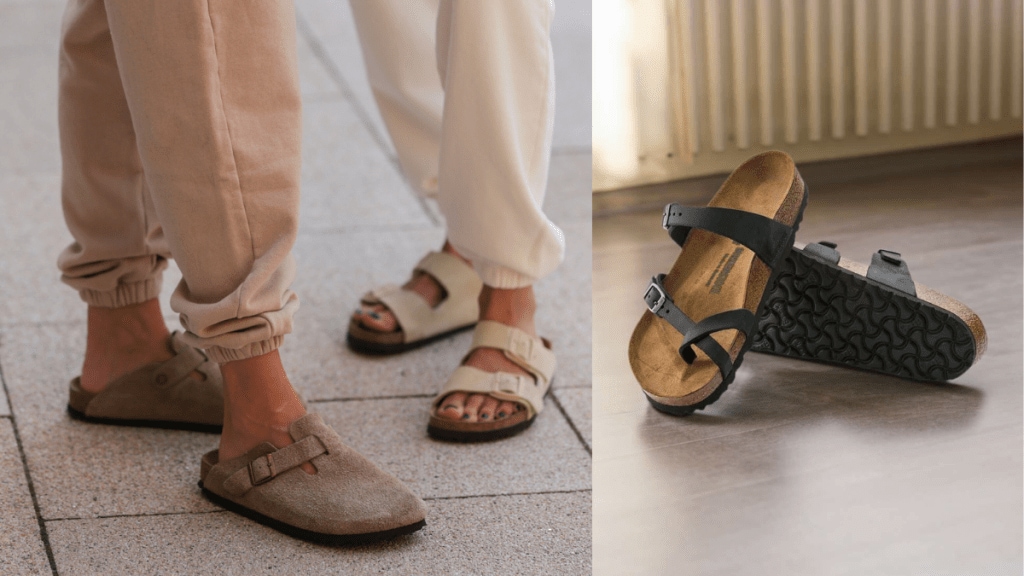German footwear brand Birkenstock has initiated a legal crackdown on counterfeit products in India. As first reported by Reuters, court-appointed legal representatives recently carried out inspections at multiple small-scale factories in New Delhi and the northern city of Agra, seizing goods suspected of being fake Birkenstock sandals.
The action stems from an infringement lawsuit the company filed in May with the Delhi High Court. Birkenstock’s complaint named four footwear traders, four manufacturing units, and two unnamed individuals, claiming they were involved in the illegal production and distribution of lookalike sandals. According to the lawsuit, an internal investigation by Birkenstock uncovered evidence that counterfeit versions of its products were being manufactured in rural areas surrounding Agra, a well-known tourist destination, and were not only being sold locally but also exported to international markets.
On May 26, Justice Saurabh Banerjee issued a confidential order authorising immediate enforcement measures. The order, which became public only last week, appointed ten local lawyers as court commissioners to visit the suspected sites. The judge empowered them to “seize, pack and seal the infringing products,” and reviewed photographs and product samples provided by Birkenstock. The visuals, submitted as evidence, showed sandals and packaging bearing the company’s trademarks.
Justice Banerjee stated in his order that the items in question appeared to be “a cheap knock-off” of genuine Birkenstock products. He added, “There is all likelihood of the public getting deceived,” pointing out that the differences between the authentic and fake items were “hardly if any,” and not easily detectable to the naked eye.
The inspections have since been completed, and confidential reports were submitted to the court. Sources familiar with the matter told Reuters that the raids were conducted across various locations in Agra and the Indian capital, though further details remain under wraps. The case is scheduled for its next hearing on October 6.
Birkenstock’s legal action comes amid a broader wave of intellectual property enforcement in India’s competitive footwear sector. Just weeks earlier, American brand Crocs secured judicial permission to proceed with a long-pending infringement case that has been in litigation for nearly a decade. Meanwhile, Italian luxury brand Prada has recently faced criticism for showcasing sandals resembling traditional Indian footwear styles, without initially acknowledging the cultural origins of the design.
The Delhi High Court case underlines the growing importance of brand protection in the Indian market, especially for global players eyeing expansion. With its vast manufacturing base and booming middle class, India represents both an opportunity and a challenge for international brands seeking to safeguard their identity from counterfeiting and misappropriation.
Birkenstock, long associated with comfort and orthopaedic design, has transformed its image over the years, becoming a mainstream fashion icon. The brand received a major cultural boost in 2023 when actress Margot Robbie sported a pair of pink Birkenstocks in the final scene of the blockbuster film Barbie, catapulting its visibility among younger consumers. Despite this renewed global attention, the company suffered a legal setback earlier this year in Germany, where a court ruled that Birkenstock sandals do not qualify as “art” and therefore do not receive copyright protection.
In India, Birkenstock sandals are priced from Rs 3,990 for men and Rs 4,990 for women, with typical ranges of Rs 7,490–Rs 15,490 for men and Rs 7,490–Rs 14,490 for women, and premium styles going up to Rs 19,990 and Rs 13,990 respectively, making them a desirable target for counterfeiters looking to capitalise on brand prestige at lower production costs.
